-
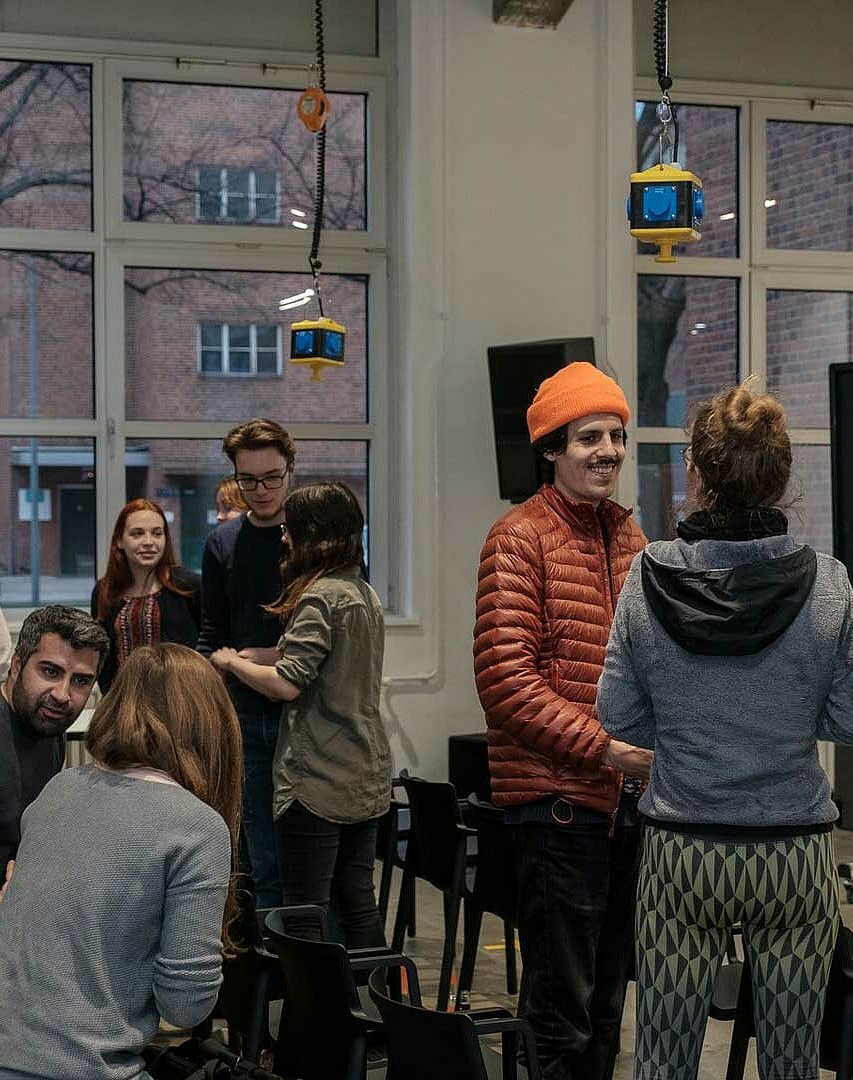
Credt: Startup Incubator Berlin
01.04.2021“We Bring Ideas to Market”
Start-ups benefit from the close proximity to science and research in the start-up capital. After all, the transfer of knowledge from universities to the economy and society is becoming ever more important. The Startup Incubator Berlin (SIB) at the Berlin School of Economics and Law (HWR Berlin) is particularly successful in supporting this process, as proved by the fact that the HWR Berlin was ranked top in the recently published “Gründungsradar 2020 (Start-up radar 2020) of the Stifterverband für die Deutsche Wissenschaft (Donor’s Association for the Promotion of Sciences and Humanities in Germany). The team around the Head of the SIB, Christian Gurol, focuses on one thing above all: methodical support.
A business tool for automatically documenting meetings, a robot for assisting elderly people at home, a breast cancer app with information for affected women and their relatives – these are just three of the products and services that the start-up teams at the Startup Incubator Berlin (SIB) at the Berlin School of Economics and Law (HWR Berlin) are currently developing. A total of 18 such teams are being systematically supported at the SIB at the moment – taking a start-up idea to market and beyond: through targeted qualification measures, coaching, continued evaluation and monitoring. “Our economic and research partners are closely involved in the whole process. We call it ‘bringing ideas to market’”, explains the Head of the SIB, Christian Gurol. And HWR Berlin Vice President, Prof. Hartmut Aden, responsible for research and knowledge transfer at the university, adds: “The transfer of knowledge has become more important for us in recent years. It is important that we harness the knowledge of our researchers and teaching staff to make it available to the economy and civil society in a targeted manner. This is why we develop structures such as the SIB”.
A Clear Focus on Methodology
What’s special about the approach of the Startup Incubator Berlin, which has been based at the site of the new Berlin Zukunftsort Siemensstadt² since the start of 2018, is the focus on methodology. And at the same time that’s one of the reasons why the HWR Berlin was named the leading university in Berlin and ranked number 7 nationwide amongst universities with 5,000 to 15,000 students in the recently published “Gründungsradar 2020" (Start-up radar 2020) of the Stifterverband für die Deutsche Wissenschaft (Donor’s Association for the Promotion of Sciences and Humanities in Germany). “When applying research results to a start-up, the focus of supervision at most universities is on developing the technology. We think a lot about how researchers have to develop so they can go from being a Gyro Gearloose bubbling with new ideas to a commercially successful Scrooge McDuck”, explains Christian Gurol.
Together with Dr. Sven Ripsas, Professor for Entrepreneurship at the HWR Berlin, Gurol and his team developed a support platform that links different methodological approaches. In order to be able to respond to the needs of the individual start-up teams as flexibly as possible, the overall process was deliberately not structured as a step-like process, but rather as a sort of funnel with various building blocks into which lots of start-up ideas are initially incorporated, ultimately producing marketable products. “We initially gather ideas from the academic field which usually come from a thesis and then try to bring these ideas to market at the SIB quickly and with as few resources as possible. Ideally, a team will then have already set themselves up, made technical purchases and acquired a pilot customer. After that, the classic funding rounds come into play”.
Make it Lean
The core of the SIB process is the “Lean Startup Methodology”: all products are developed cyclically with constant feedback from potential customers. Business partners are involved as early on as the first process phase, which starts with the idea and moves on to the development of a prototype. As part of the “Make It Lean Contest” organised every year by the Berlin School of Economics and Law since 2018, graduates from the HWR Berlin and other universities can present their start-up ideas in three-minute video pitches. The winners are then chosen via online voting and receive prize money. But the runners-up can also benefit by applying for follow-up programmes at the SIB and thus continuing to work on their ideas. The HWR Berlin programme "JumpStart" also provides low-threshold start-up assistance in this first “sensitisation phase” by covering material costs.
The second process phase at the SIB involves supporting the start-up teams in their first steps. The “Startup Now” programme focuses on developing the business model and so-called MVP, a “minimum viable product”, as well as setting up a functioning start-up team through “co-founder matching”: “Scientific teams are often homogeneously made up of people with expertise in one subject area. But the ideal start-up team also has marketing professionals and technical experts etc. So in the “StartUp Now” programme, we ask: how are you filling these roles? And what value system do you have in the team? The latter in particular must be in harmony in order to successfully drive forward a business idea in the long term”, explains Christian Gurol. In the third process phase, the SIB prepares the teams to finally enter the market – with funding options with the Berlin startup grant from the HWR Bdrelin or an EXIST start-up grant.
The SIB Cycle of Success: Build, Measure, Learn
“The Lean Startup Process is very lively. It is a development cycle based on continuous building, measuring and learning. In concrete terms, this means that our teams build something, they show it to potential customers and then measure how the market reacts to the product or service and learn by developing the product further”. Christian Gurol knows that it is crucial to talk to potential customers on an ongoing basis, as products are still often optimised so much that they end up failing to meet the needs of the market. “We can observe this ‘classic German engineer thinking’ even in large companies.” Regular milestone discussions and “reflective coaching sessions” with experts from the SIB coaching pool, including accountants, lawyers and marketing experts as well as partners from the SIB network, are therefore integrated into the process at the SIB. “Peer learning” also plays a role: sharing experiences and skills amongst the individual start-up teams.
Since 2009, around 110 start-ups have successfully passed through the HWR Berlin start-up centre. These include “SunCrafter”, a company that upcycles discarded solar modules into free-standing solar generators, and “Lawio”, a legal-tech start-up that aims to help tenants assert their rights via a digital advice service. After starting out at the BSEL Schöneberg campus, the Startup Incubator Berlin has been based at the site in Spandau since 2018. At the “A32 Entrepreneurs Forum Berlin Siemensstadt”, the SIB start-up teams not only have a co-working space with 25 workstations, but also event areas, a prototype workshop, a design thinking lab, a smart device lab with modern test equipment and a VR/AR lab. The VR lab is also the training centre of Siemens Energy. Siemens employees from around the world come here to learn how to operate the gas turbines produced in Berlin on the virtual model.
Early Link to the Economy
The entrepreneurs can also easily exchange ideas with employees from Siemens and other companies at events and workshops in the co-working space. Given the restricted nature of networking at the moment due to the pandemic, the teams use the newly established SIB video lab to present themselves on the market. “Our objective is to establish a link between the needs of the economy and the problem solutions of the start-ups as early on as possible. This gives our business partners the opportunity to help drive the development of products and services in the SIB from the very beginning”, explains Christian Gurol who also points out: “That doesn’t mean that we’re the companies’ extended workshop. Rather, we want to create a network. And we’re already on the right track after three years.”
The network at the Siemensstadt² site is expanded and at the same time strengthened in a variety of ways thanks to its proximity to the research institutes of the Werner-von-Siemens Centre for Industry and Science at the Siemensstadt² site – and thanks to its central location in the Brain City Berlin. Christian Gurol explains: “Entrepreneurs are usually nomads. They often don’t care whether they’re based in Copenhagen, Lisbon, Munich or Berlin. But Berlin provides start-ups with an exceptionally diverse network. It doesn’t matter whether you want to establish a food start-up or set up a high tech company, you’re bound to find the right partners for any requirements in Berlin. It continues to be a clear selling point for the city. Berlin’s size is also very exciting for start-ups.” The Head of the Startup Incubator Berlin also has a tip for entrepreneurs: “If I could give a piece of advice, it would be this: think big! Pluck up the courage and commit to it 100%. Because your start-up won’t be a success if it’s just something you do on the side. And you can find the right support in Berlin for all phases of launching your start-up!” (vdo)
The deadline to apply for the SIB Berlin Startup Scholarship is 11 April 2021.
You can find more information at www.startup-incubator.berlin

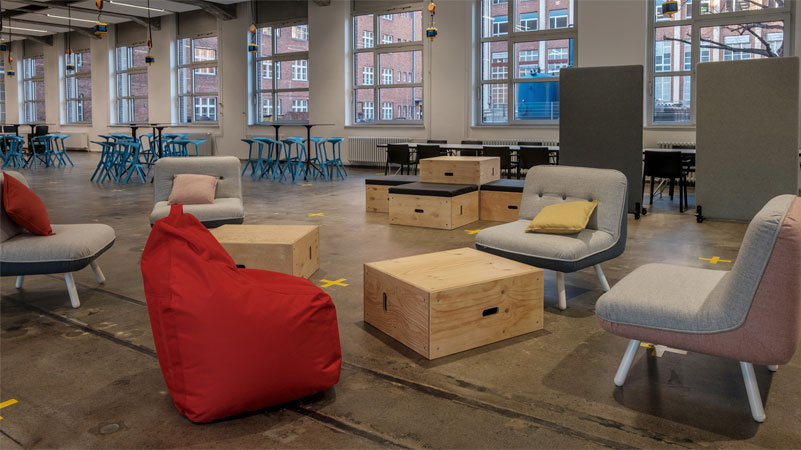


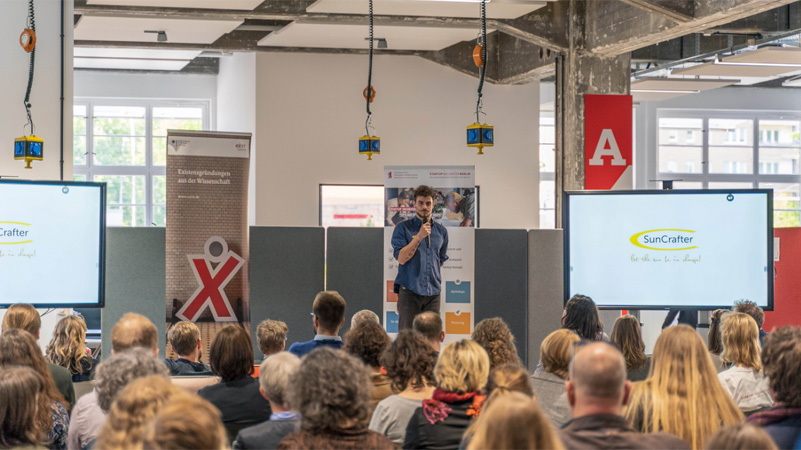
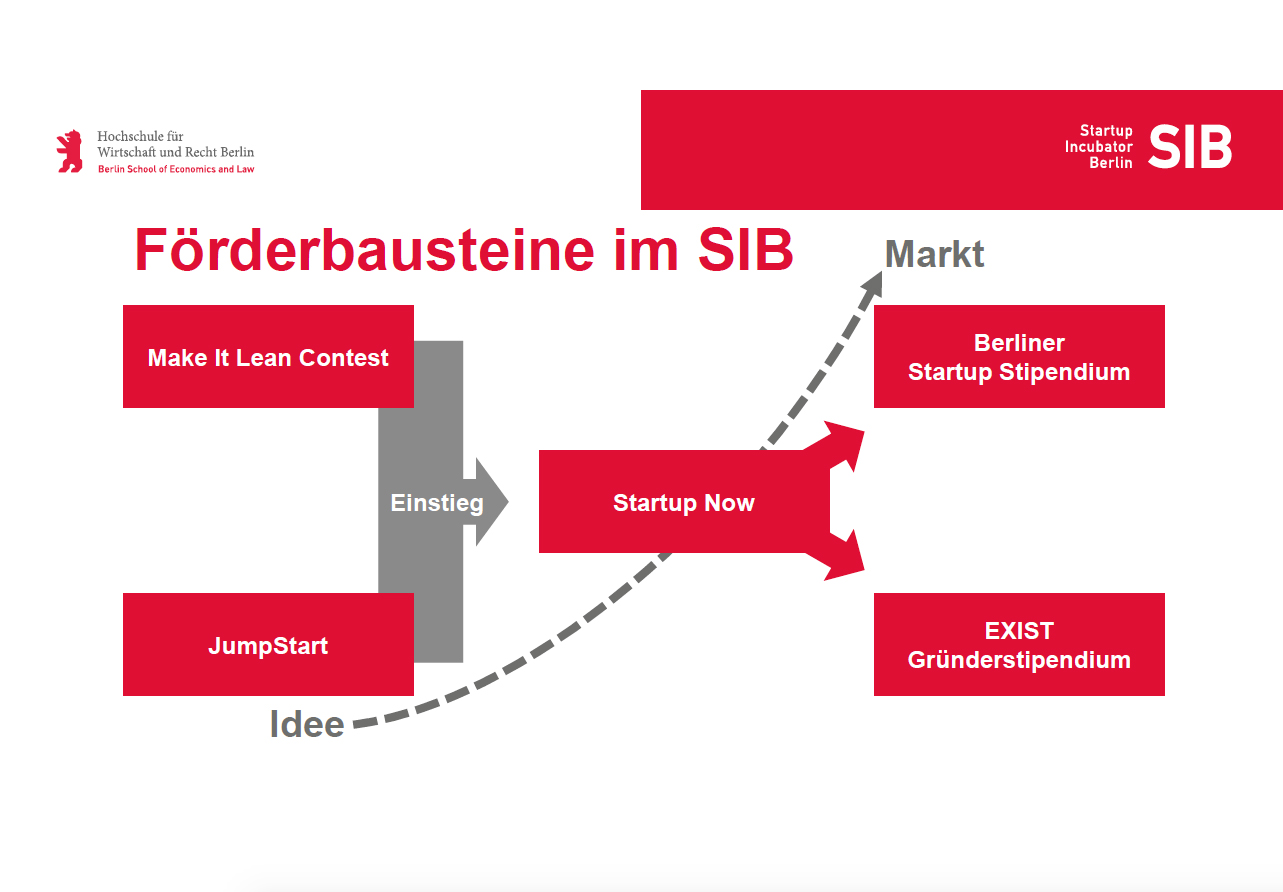
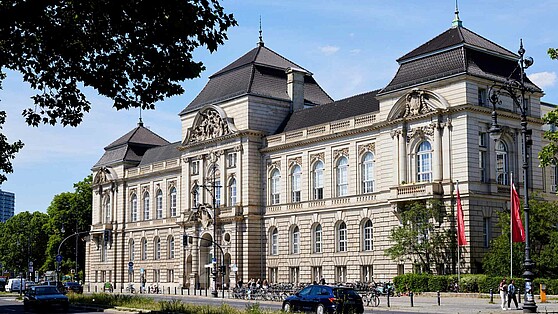


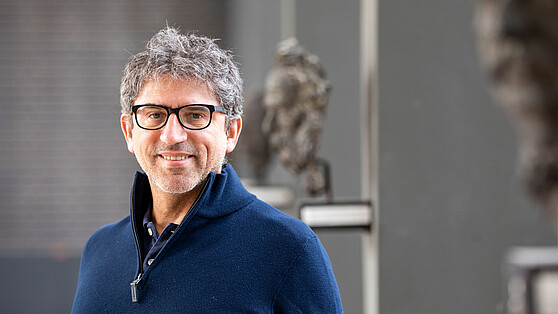
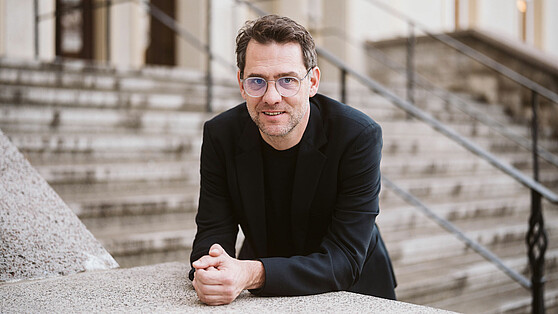




































































































![[Translate to English:] [Translate to English:]](/fileadmin/_processed_/9/d/csm_bwasihun-vdo_558x314_c0d384ce60.jpg)
![[Translate to English:] Berlin University Alliance/Matthias Heyde [Translate to English:]](/fileadmin/_processed_/5/a/csm_Berlin_University_Alliance_Matthias_Heyde-558x314_4bc591ca3c.jpg)
![[Translate to English:] David Ausserhofer/IGB [Translate to English:]](/fileadmin/_processed_/6/f/csm_Hupfer__Michael_____R__David_Ausserhofer_588x314_6fef164e57.jpg)
![[Translate to English:] Helena Lopes / Unsplash [Translate to English:]](/fileadmin/_processed_/b/6/csm_helena-lopes-1338810-unsplash_558x314_857802ad2f.jpg)
![[Translate to English:] HZB/M. Setzpfandt [Translate to English:]](/fileadmin/_processed_/f/a/csm_LNDW_HZB_558x314_e1e3500ed5.jpg)
![[Translate to English:] Tim Landgraf [Translate to English:]](/fileadmin/_processed_/0/7/csm_Car2CarEnergySharing_Tim_Landgraf_558x314_485bf716e9.jpg)
![[Translate to English:] [Translate to English:]](/fileadmin/_processed_/b/6/csm_Open-Access_Berlin-Partner_Wu__stenhagen_558x314_dd0c6e714d.jpg)
![[Translate to English:] Thomas Rosenthal - Museum für Naturkunde Berlin [Translate to English:]](/fileadmin/_processed_/6/d/csm_Museum_fu___er_Naturkunde_Berlin_Thomas_Rosenthal_f11b8ba056.jpg)
![[Translate to English:] [Translate to English:]](/fileadmin/_processed_/f/c/csm_TU_Berlin_Cem_Avsar_558x314_4b07bcb055.jpg)